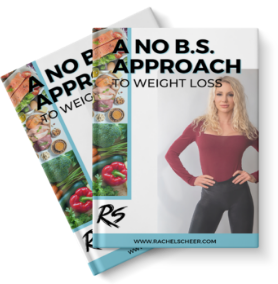The RSN Quick Guide to Grocery Shopping
Grocery shopping and meal prep can make or break your journey to a life without “dis-ease”. Follow our tips and tricks to set yourself up for success!
What is meal prep?
Meal preparation is a method for ensuring you meet your nutrition needs all week long by adequate planning and preparation.
Have you ever walked in after a long day at work feeling tired but wired and ready to cope with some emotional eating? It’s safe to say that many of us have been there, and we often feel guilt or even physical pain afterward due to making poor choices in the moment. In that moment, we chose to react to our hunger.
On the other hand, meal prep focuses on being proactive in our health and nutrition journey by allowing us to design a menu that fits our needs, as well as take the proper steps to ensure we find success. It allows us to take time and reflect on our nutrition needs as well as plan out the meals and snacks we need throughout the week. Then, the fun begins with cooking.
Meal prep helps us design our grocery list with ease, as well as create meals that we know we’ll enjoy for days to come. It gives us an outlet in cooking so we can connect with our minds, bodies, and the food we eat.
While it can sound daunting at first to transition from the “in the moment” style of eating to meal preparation, this proactive method saves us time and energy in the long run.
What should you stock up on while grocery shopping?
While designing your meal prep and grocery shopping, there are four key categories to focus on. These include our animal proteins, fats, vegetables, and fruits.
Examples of animal proteins to prioritize include: grass-fed beef and bison, pasture raised poultry and eggs, wild-caught fish, and even bone broth.
Our fat sources are key to keeping us full and satisfied in our meals. Plus, they help contribute to taste! Fat sources to focus on include: avocado, kalamata olives, and grass-fed butter or ghee. Ghee is an excellent choice is it is a clarified butter and is considered dairy-free!
Vegetables are often our free-bees, meaning the more – the better! When grocery shopping, we want to prioritize non-starchy vegetables. Non-starchy vegetables have less effect on raising our blood glucose levels and provide fiber to help us feel full as well as maintain regular bowel movements.
Examples of vegetables to purchase include: organic arugula, Brussels sprouts, peppers, green beans, kale, and spaghetti squash. We can also incorporate some organic starchy vegetables in our meal prep, including sweet potatoes, carrots, and squash.
Lastly, we can round out our meal preparation and grocery shopping with fruits. Berries are an excellent option as they are low in sugar and taste great. Be sure to opt for organic berries when possible!
What are some tips and tricks to make my grocery shopping a success?
The first tip for success in your shopping trip is to plan ahead. Focus on prioritizing your nutrition needs in terms of animal proteins, fats, vegetables, and fruits. While it may be easy to be sucked into marketing and sales tactics, a game plan can make it easy to stay dedicated to your individual needs.
The second most important tip for success in grocery shopping is to not go to the store hungry. When we’re hungry, we can often be more susceptible to those not-so-good choices. Heading to the grocery store hungry can set us up for failure, even when we have a game plan in place. Make sure to head to the store after a filling meal or snack!
What does a full day of eating for gut health look like?
At Rachel Scheer Nutrition, we love to provide actual insight into our meals and meal prep techniques. Our team of Registered Dietitians can work with you to develop a customized full day of eating for gut health and wellness.
Our coach, Karlei, showed her full day of eating on our Instagram page here.
She included a protein shake for breakfast, buffalo chicken salad at lunch, and simple meal of salmon with sweet potato and roasted non-starchy vegetables for dinner. Karlei shows that meal preparation and eating well for gut health doesn’t have to be difficult, costly, or even time consuming. With proper planning and dedication to your goals, a full day of eating for gut health is attainable.
How can I get individualized nutrition help?
Are you looking for customized guidance on your journey to better health? At Rachel Scheer Nutrition, we specialize in finding the root cause of your dis-ease and formulating a plan so you can succeed. Learn more about our coaching program here!

Rachel Scheer is a Certified Nutritionist who received her degree from Baylor University in Nutrition Science and Dietetics. Rachel has her own private nutrition and counseling practice located in McKinney, Texas. Rachel has helped clients with a wide range of nutritional needs enhance their athletic performance, improve their physical and mental health, and make positive lifelong eating and exercise behavior changes.
Read This Next
Micronutrients, or the vitamins and minerals your body needs, typically work like a team. To…
If you want to improve gut health, or even optimize your overall health, you’ve probably…
Have you ever found yourself grappling with the discomfort of abdominal distension, bloating, or cramping,…



